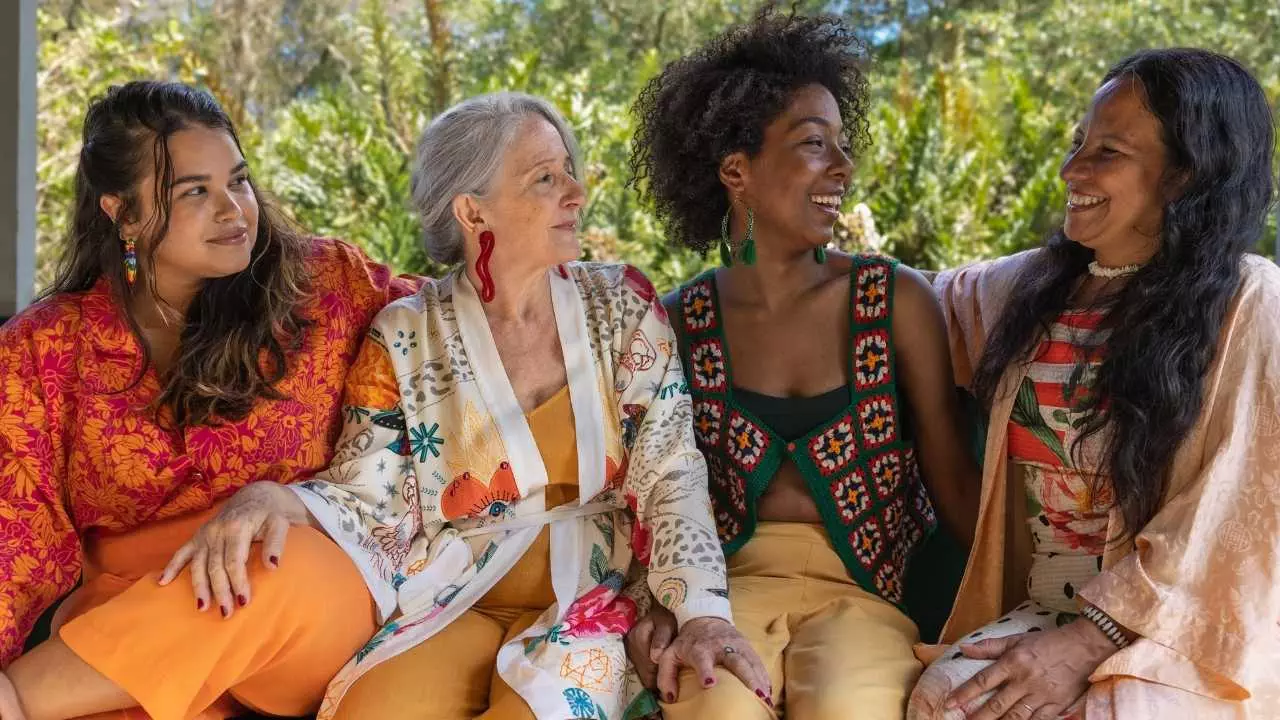Table of Contents
As someone who has retired, you have gained a lot of knowledge over the years. Sharing what you know through mentoring is a wonderful way to use this knowledge. When you help younger people, you’re doing more than just teaching them—you’re helping to create a lasting impact that will be felt for years to come.
Mentoring is not only about giving; it’s about forming meaningful connections. It gives you a purpose that makes you feel good inside and is good for the people around you. You’ll discover that as you teach others, you also learn and grow in ways you might not expect.
Giving back in such a direct way can also be good for you. It keeps your mind active and your emotions positive. Mentoring is more than just volunteer work; it’s a way to make a difference in others’ lives and yours too.
Key Takeaways
- Mentoring allows retirees to impart invaluable wisdom to younger generations.
- Mentoring bridges the gap between generations and fosters meaningful connections and emotional support
- Engaging in mentoring catalyzes personal growth and enhances personal development.
- Mentoring contributes to community development and continuity and reaps health benefits for retirees.
Through mentoring, you can impart the invaluable wisdom you’ve amassed over decades to younger generations hungry for guidance. The process of wisdom transfer isn’t just about sharing what you know; it’s about connecting with others in a way that enriches your life and theirs.
You become a bridge that spans the gap between generations, fostering generational bridging that strengthens the very fabric of your community.
You’ve navigated countless challenges and celebrated numerous triumphs. Now, you can offer a steadying hand to those who are just beginning their journey. Your insights can illuminate paths that may otherwise seem daunting to the uninitiated.
As a mentor, you’re not simply relaying information; you’re shaping the future by empowering the next wave of leaders, thinkers, and doers with the tools and perspectives only experience can provide.

Fostering Meaningful Connections
As a retiree mentor, you’ll find that building relationships with mentees isn’t just rewarding—it’s a catalyst for forming profound connections that can last a lifetime.
Through mentoring, you’re sharing your knowledge and indulging in the rich experience of generational bridging, where two eras come together in a beautiful exchange of stories, values, and lessons.
In fostering these relationships, consider:
Generational bridging:
- You bridge the gap between ages, offering a unique perspective to the youth.
- Your mentees gain insights into the past, helping them shape a better future.
- This exchange nurtures respect and understanding across generations.
Hobby transmission:
- Sharing your passions creates a bond beyond the basic mentor-mentee relationship.
- You might introduce them to a hobby that could turn into a lifelong passion for them, too.
- Activities like gardening, woodworking, or painting can become shared joys and learning experiences.
Emotional support:
- Providing a listening ear and understanding heart fosters trust and empathy.
- Your support can be a beacon of hope during their challenging times.
- This emotional investment can lead to a deep, enduring friendship.
Enhancing Personal Growth
Continuing your journey as a retiree mentor, you’ll discover that nurturing others also catalyzes your personal growth, sharpening skills, and expanding perspectives. As you guide mentees, you’re not just imparting wisdom; you’re engaged in a wisdom exchange that keeps your own insights fresh and relevant. The stories you share become mirrors reflecting lessons you’ve learned, perhaps revealing new facets you hadn’t noticed before.
Through this process, you’ll encounter creative fulfillment. It’s not just about passing on knowledge; it’s about brainstorming solutions, fostering innovation, and, sometimes, simply finding joy in the act of creation itself. Whether helping a young entrepreneur refine a business plan or aiding a student in setting educational goals, your creative muscles flex and strengthen.
This growth isn’t confined to professional skills, either. You’ll find yourself becoming more patient, more empathetic, and more understanding. As you listen to the challenges others face, you’ll recall your hurdles and how you overcame them, perhaps gleaning new insights into your journey. Therefore, mentoring becomes a mutually enriching experience that illuminates the path forward for both you and your mentee.
Contributing to Community Development
By investing your time in mentoring, you’re also playing a pivotal role in strengthening the fabric of your community. Your wisdom and experience can create ripples of positive change, fostering an environment where everyone can flourish. This isn’t just about individual success; it’s about nurturing a collective future that’s vibrant and resilient.

Your influence as a mentor:
Intergenerational impact: You bridge the gap between generations, ensuring that valuable life lessons and professional skills are passed down.
- You help young people navigate challenges with grace.
- You instill a sense of history and continuity.
- You inspire respect for the past while fostering innovation for the future.
Empowerment: By empowering your mentees, you’re planting seeds for future leaders and active community members.
- You boost their confidence to take on leadership roles.
- You encourage civic engagement and social responsibility.
- You watch as they grow into mentors themselves, continuing your volunteer legacy.
Community cohesion: Your mentoring helps weave a stronger social fabric, one that supports its members and celebrates diversity.
- You promote mutual understanding and collaboration.
- You contribute to a culture of helping and giving back.
- You see a community thrive when its members care for each other.
In your golden years, you’re not just passing time; you’re passing on a treasure trove of knowledge and values. Your mentorship is a testament to a life well-lived and a community well-loved.
Reaping Health Benefits
Your role as a mentor enriches your community and offers significant health benefits for you as a retiree. When you share your knowledge and experience, you’re not just shaping the future; you’re engaging in a process that keeps your own mind sharp and your heart full. This healthy engagement with others can reduce stress levels and increase your life’s sense of purpose.
By dedicating time to guide others, you’ll likely experience a level of volunteer satisfaction that goes beyond what you might find in other activities. The deep human connection, the giving and receiving of wisdom, nurtures your well-being. Studies have shown that retirees who stay actively engaged in mentoring report better physical and mental health, and you’re no exception.
Furthermore, the social interactions involved in mentoring help ward off loneliness and depression, common concerns in retirement. You’re creating a legacy of care that not only supports another’s growth but also contributes positively to your health. It’s a beautiful cycle of giving and growing, making your golden years shine even brighter.
Frequently Asked Questions
How Can Retirees Find Appropriate Mentoring Opportunities That Match Their Skills and Interests?
If you’re retired and looking to share your knowledge, seeking out mentoring roles can be rewarding. Start by checking out websites designed for volunteers, specifically those that highlight areas you’re skilled in. These platforms can help connect you with people who could really use your guidance.
For instance, if you’re a retired teacher, websites like Tutor.com can pair you with students in your subject area. It’s important because you can use your expertise to make a difference, and it can be incredibly fulfilling to pass on your wisdom to someone else. Look for opportunities that excite you and align with your interests, ensuring a good fit and a meaningful experience.
Are There Specific Challenges Retirees Should Expect When Starting to Mentor, and How Can They Prepare for These?
When you start mentoring as a retiree, you might find it challenging to connect with younger people because of the differences in age and experience.
To overcome this, it’s a good idea to learn how to use current communication methods, like messaging apps or social media. This helps you talk with the younger generation more easily. It’s also important to listen to what they say, be willing to change your approach if needed and offer your knowledge in a kind and patient way.
For instance, if you’re mentoring someone in a tech field, you could learn the basics of the latest software they’re using to better understand their challenges. Your experience is valuable, and sharing it can make a big difference in someone’s career and life.

What Are Some Tips for Retirees to Establish Boundaries and Manage Their Time Effectively While Volunteering as Mentors?
When you start mentoring, being upfront about what you can do and how much time you can give is essential. This helps you make a real difference without overstretching yourself. For instance, you could say, “I can offer guidance for two hours a week”.
Keeping track of the time you spend mentoring will also help you balance helping others with your activities. You could use a simple app like Toggl to log your mentoring hours. By doing this, you’ll be able to volunteer your time and experience wisely, ensuring you don’t neglect your own needs or schedule.
Can Retirees Who Are Less Mobile or Have Disabilities Still Participate in Mentoring, and What Accommodations Are Available?
Even if you’re a retiree with limited mobility or a disability, you can absolutely still be a mentor. Technologies like screen readers, voice recognition software, and video calling can help you connect with and guide others. This is important because your knowledge and life experiences are incredibly valuable to learning and growing people. For example, a video chat program like Zoom can allow you to give face-to-face advice without traveling.
Organizations often provide these tools and ensure everything is accessible so that physical limitations don’t hold you back from sharing your wisdom. Plus, mentoring this way can be very rewarding for you and those you help.
How Can Retirees Measure the Impact of Their Mentoring Efforts and Understand the Long-Term Effects on Those They Mentor?
As a retiree who mentors, you can understand your impact by observing how the people you mentor grow and improve. It’s important to pay attention to their achievements because this shows how your guidance is helping them.
When you hear about their successes, it’s more than just nice – it’s proof that you’re making a significant difference in their lives. For example, if a mentee gets a promotion or successfully tackles a project you helped them with, that’s a sign of your positive influence.
Keep conversations open with your mentees and ask for updates on their progress to get a full picture of the effect you’re having.
Our Final Thoughts
Mentoring is incredibly rewarding for retirees because it allows them to share their lifetime of knowledge. Retirees often feel a deep appreciation as they guide and teach others.
Their life stories and experiences pave the way for others to learn and grow. Through mentoring, retirees help shape the future for others and keep their passion for life alive.
This knowledge exchange can rejuvenate, making mentoring a fulfilling way for retirees to volunteer.
















